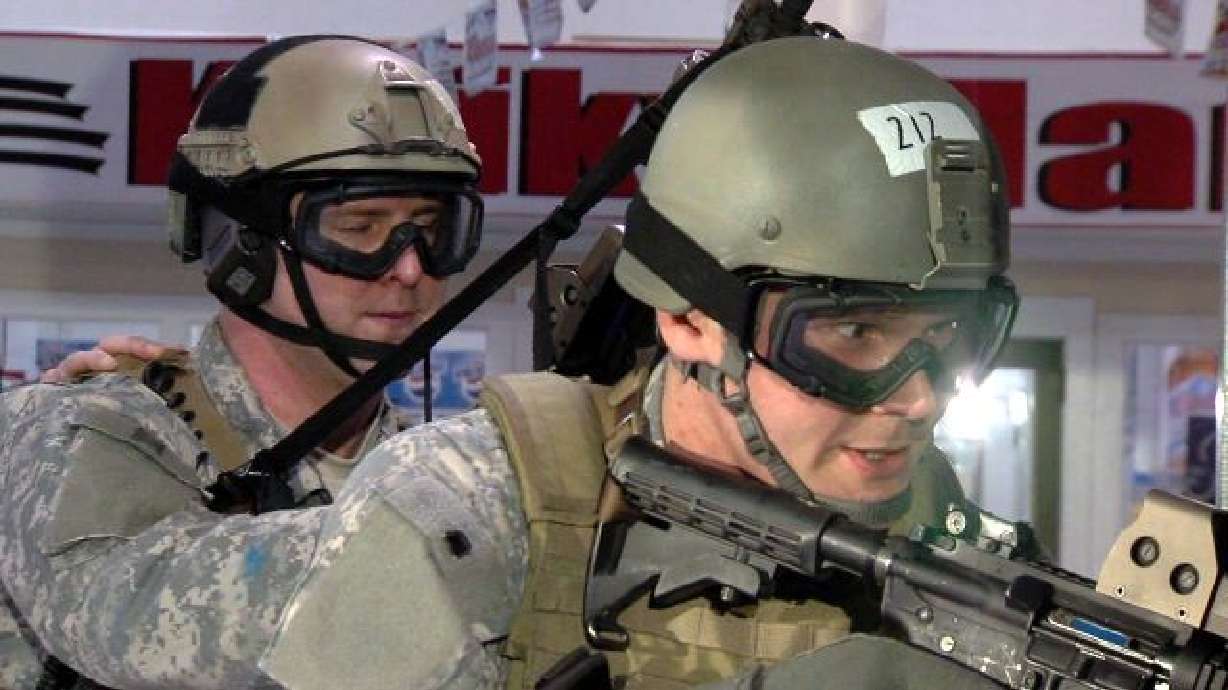Estimated read time: 3-4 minutes
This archived news story is available only for your personal, non-commercial use. Information in the story may be outdated or superseded by additional information. Reading or replaying the story in its archived form does not constitute a republication of the story.
SALT LAKE CITY — Utah lawmakers will consider whether to give judges more oversight when it comes to forced entry warrants.
Rep. Marc Roberts, R-Santaquin, and Sen. Luz Robles, D-Salt Lake City, are the sponsors of H.B. 70, which creates a higher uniform standard for judges to grant the warrants — in many cases a probable cause standard to prove that evidence will otherwise be "easily or quickly secreted or destroyed."
"To the extent that judges today aren't providing sufficient oversight, we find it reasonable to find ways to ensure judges are being more cautious in approving this very violent and risky police tactic," said Libertas Institute president Connor Boyack.
The Libertas Institute issued a policy analysis with the bill. Boyack contends the legislation should serve to strengthen the relationship between police and judges while better protecting all involved when warrants are served.
Boyack has pointed to recent cases of police raids gone wrong as evidence of a need for change, including a 2012 raid on an Ogden home that left one officer dead and five others wounded.
Greg Skordas, a lawyer representing the Utah chapter of the Fraternal Order of Police, viewed the law as a "corrective measure" in light of those cases, but he balked at the idea that warrants are easily had under current statutes.
"We've had over 200 years of Fourth Amendment law in this country and it's already very, very difficult for police to get a search warrant," Skordas said.
We've had over 200 years of Fourth Amendment law in this country and it's already very, very difficult for police to get a search warrant.
–Greg Skordas, attorney
Boyack said his group and lawmakers were not trying to "substantially restrict" forcible entry warrants.
The legislation also requires police to use "the least amount of force necessary" when executing a forcible entry warrant, and it states "any information or property obtained in violation of this section is inadmissible in any judicial proceedings."
"The intent of that provision is to add some teeth to the bill," Boyack said. "We want the law to be followed."
However, the president of the Fraternal Order of Police, Brent Jex, said the bill is unneccesary and that police offers already follow strict regulations to issue a warrant.
"Each thing outlined in this bill is already in place," Jex said. "In search warrant affidavits, we already have to show each one of those things. This bill seems to be unnecessary and is only making a political statement that the police are doing something wrong, when in fact, we are not. Neither of these representatives contacted us to discuss any provisions before this was drafted, or we could have explained that to them."
Skordas said in the past, police have been given a "good faith exception" or benefit of the doubt when their information was wrong.
"This bill does seem to restrict that a little bit and say that if police obtain property in violation of the statute it's inadmissible not withstanding their good faith or their belief that they were acting appropriately," Skordas said.
Boyack was optimistic about the legislation's prospects, pointing to bipartisan support and saying every lawmaker he had approached at least agreed discussion was needed.
"We're very encouraged to see the legislature as a whole is willing to consider this," Boyack said.









